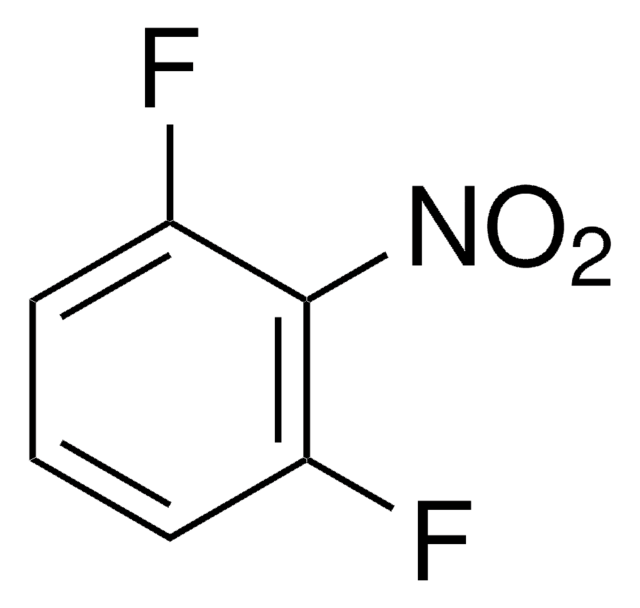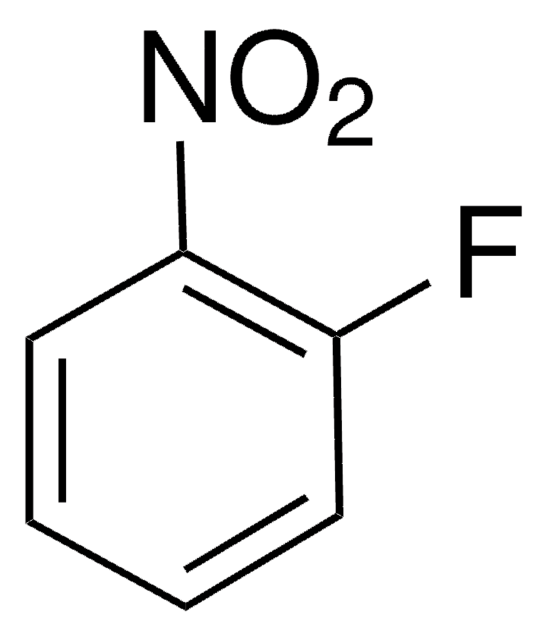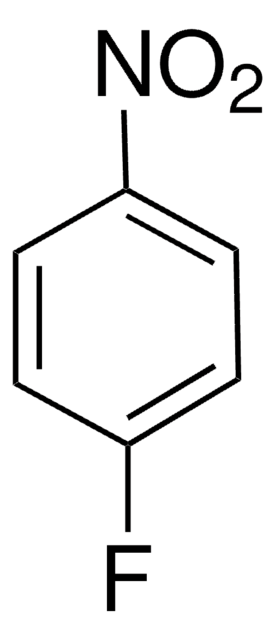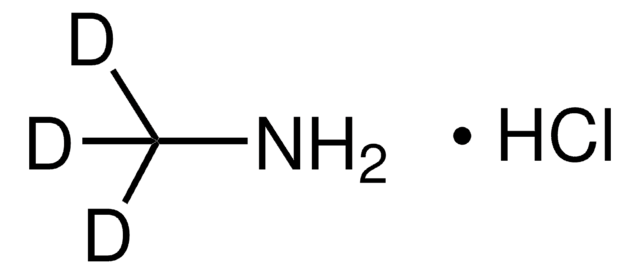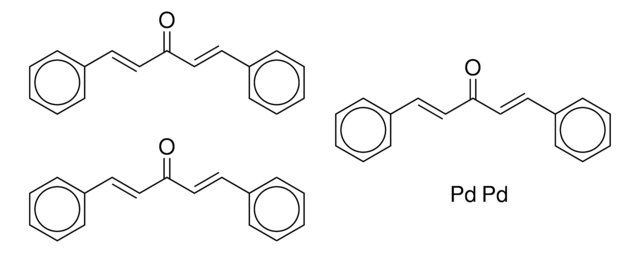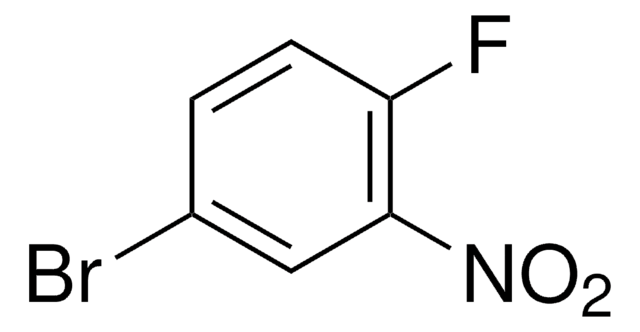196622
2,5-Difluoronitrobenzene
97%
Synonym(s):
1,4-Difluoro-2-nitrobenzene
Sign Into View Organizational & Contract Pricing
All Photos(1)
About This Item
Linear Formula:
F2C6H3NO2
CAS Number:
Molecular Weight:
159.09
EC Number:
MDL number:
UNSPSC Code:
12352100
PubChem Substance ID:
NACRES:
NA.22
Recommended Products
Quality Level
Assay
97%
form
liquid
refractive index
n20/D 1.509 (lit.)
bp
206.5 °C (lit.)
mp
−11.7 °C (lit.)
density
1.467 g/mL at 25 °C (lit.)
functional group
fluoro
nitro
SMILES string
[O-][N+](=O)c1cc(F)ccc1F
InChI
1S/C6H3F2NO2/c7-4-1-2-5(8)6(3-4)9(10)11/h1-3H
InChI key
XNJAYQHWXYJBBD-UHFFFAOYSA-N
Looking for similar products? Visit Product Comparison Guide
Application
2,5-Difluoronitrobenzene was used in the synthesis of :
- N-alkylated 2-arylaminobenzimidazoles
- quinoxalinones
- N-(2-nitro-4-fluorophenyl)-l,2,3,4-tetrahydroisoquinoline
Signal Word
Warning
Hazard Statements
Precautionary Statements
Hazard Classifications
Eye Irrit. 2 - Skin Irrit. 2 - STOT SE 3
Target Organs
Respiratory system
Storage Class Code
10 - Combustible liquids
WGK
WGK 3
Flash Point(F)
194.0 °F - closed cup
Flash Point(C)
90 °C - closed cup
Personal Protective Equipment
dust mask type N95 (US), Eyeshields, Gloves
Choose from one of the most recent versions:
Already Own This Product?
Find documentation for the products that you have recently purchased in the Document Library.
H E Haenen et al.
Chemico-biological interactions, 98(2), 97-112 (1995-11-17)
Proximal tubular biotransformation of the glutathionyl (GSH) conjugate derived from 2,5-difluoronitrobenzene (5-fluoro-2-glutathionyl-nitrobenzene) was studied by means of 19F-NMR. This method allows a direct and specific detection of the fluorinated metabolites formed, at a detection limit of 1 microM for an
A solid phase traceless synthesis of quinoxalinones.
Krchnak V, et al.
Tetrahedron Letters, 41(16), 2835-2838 (2000)
Ring-opening reactions of N-aryl-, 1, 2, 3, 4-tetrahydroisoquinoline derivatives.
Andrew HK and Stanforth SP.
Tetrahedron, 48(4), 743-750 (1992)
I M Rietjens et al.
Chemico-biological interactions, 94(1), 49-72 (1995-01-01)
The in vivo metabolite patterns of 2,5-difluoroaminobenzene and of its nitrobenzene analogue, 2,5-difluoronitrobenzene, were determined using 19F NMR analysis of urine samples. Results obtained demonstrate significant differences between the biotransformation patterns of these two analogues. For the aminobenzene, cytochrome P450
Manuel A V Ribeiro da Silva et al.
The journal of physical chemistry. B, 114(40), 12914-12925 (2010-09-24)
This work reports the experimental and computational thermochemical study performed on three difluorinated nitrobenzene isomers: 2,4-difluoronitrobenzene (2,4-DFNB), 2,5-difluoronitrobenzene (2,5-DFNB), and 3,4-difluoronitrobenzene (3,4-DFNB). The standard (p° = 0.1 MPa) molar enthalpies of formation in the liquid phase of these compounds were
Our team of scientists has experience in all areas of research including Life Science, Material Science, Chemical Synthesis, Chromatography, Analytical and many others.
Contact Technical Service
